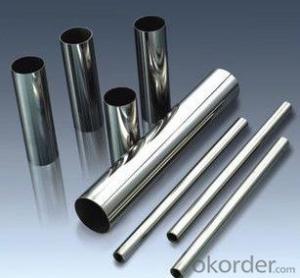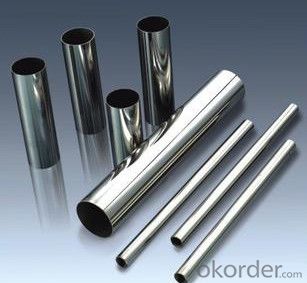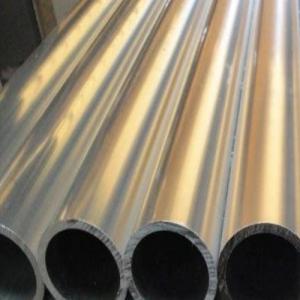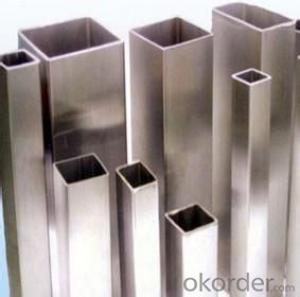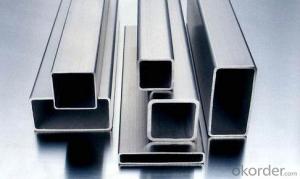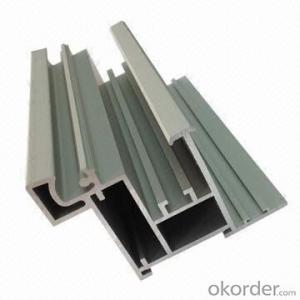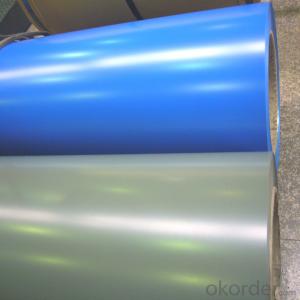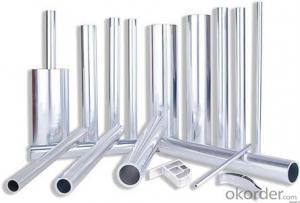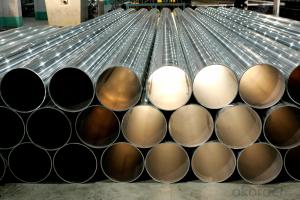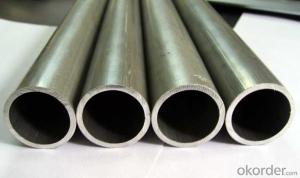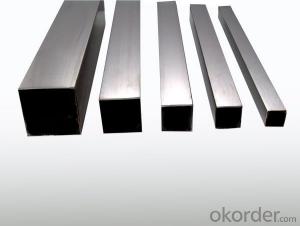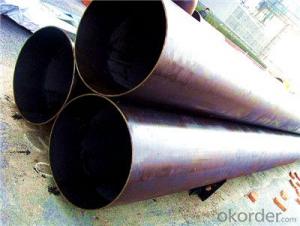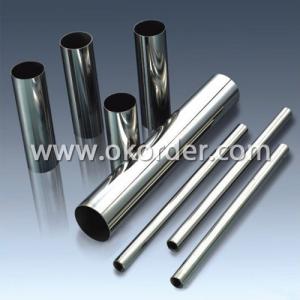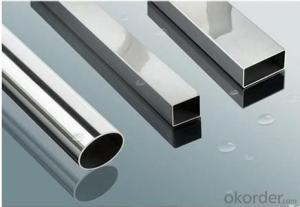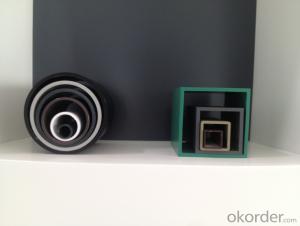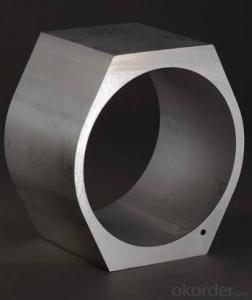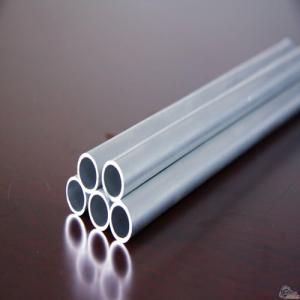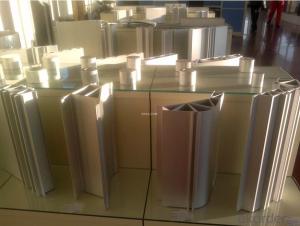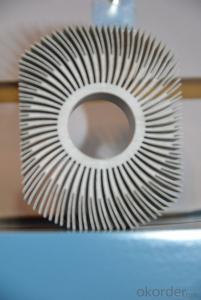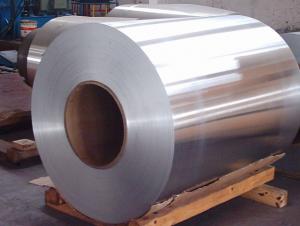Aluminum Pipes - Aluminum Seamless Tube Alloy 2000
- Loading Port:
- China Main Port
- Payment Terms:
- TT OR LC
- Min Order Qty:
- -
- Supply Capability:
- -
OKorder Service Pledge
Quality Product, Order Online Tracking, Timely Delivery
OKorder Financial Service
Credit Rating, Credit Services, Credit Purchasing
You Might Also Like
Specification of aluminum tube/pipe
Alloy: | 2A12, 2014, 2014A, 2017A, 2024, 3003, 5005, 5754, 5083, 7020, 7075 etc |
Temper: | O F T3-T6 |
Out diameter: | 15-220mm |
Wall thickness: | 1.0-60mm |
Length: | 6000mm or as need |
We can provide a full range services including: extrusion, anodizing, machining . we produce aluminium extrusions, aluminum tube, seamless aluminum tube, aluminum bar, aluminum angle, aluminum channels, and industry profiles, in a wide range of commercial alloys, including 1050, 1200, 2A12, 2014, 2014A, 2017A, 2024, 3003, 5083, 6005A, 6060, 6061, 6063, 6063A, 6082, 6463, 7020, 7075 subject to temper requirements and product specification.
- Q: The air conditioner is broken in the middle of the aluminum tube. How can I weld it?
- There are two kinds of welding methods for aluminum pipe.Method: gas, liquefied gas welding gun with WE-Q303 low temperature aluminum wire.Method two: AC argon arc welding, argon arc welding with aluminum argon arc welding machine.
- Q: I would like to ask what kind of material should I buy to buy a pull rod box? I like one of them. It's an aluminum pipe pull rod. I wonder if it is good Ask for guidance, thank you
- The pull rod aluminum alloy is the best and strongest. Fabric material has a very good material, is imported from Germany, curv material
- Q: Shenzhen Jin Rongfa metal materials Co., Ltd., specializing in processing aluminum tubes, aluminum bars, aluminum plate, aluminum processing, oxidation, a variety of anodic oxidation. Sand blast oxidation. Hard anodized, colors, black, blue, red, tyrant gold, rose goldLathe kits and laser marking processing are also provided!
- 5, easy to operate: you can freely design graphics through the computer, easy to operate, power controlled by software. Laser marking machine mainly includes semiconductor laser marking machine, CO2 laser marking machine, optical fiber laser marking machine, YAG vibrating mirror laser marking machine, deep UV laser marking machine and green laser marking machine. Semiconductor laser marking machine features: the use of the light source is a semiconductor laser array, so the optical conversion efficiency is very high, reaching more than 40%; the heat loss is low, without being equipped with cooling system; low power consumption, about 1800W/H. The whole machine performance is very stable, belongs to maintenance free products, the whole machine maintenance free time can reach 15000 hours, equivalent to 10 years maintenance free, no krypton lamp replacement, no supplies. Semiconductor laser marking machine applicable scope: can engrave metal and many kinds of non-metal materials. The utility model is more suitable for occasions needing more precise and higher precision. Used in electronic components, integrated circuit (IC), electrical appliances, mobile phone communications, hardware, tool accessories, precision instruments, watches, jewelry accessories, auto parts, plastic buttons, building materials, PVC pipe, medical equipment and other industries. Applicable materials include: ordinary metals and alloys (iron, copper, aluminum, magnesium, zinc and other metal), rare metals and alloys (gold, silver, titanium), metal oxide (metal oxide can), special surface treatment (phosphate, aluminum anodizing, electroplating, surface material (ABS) shell appliances, commodity), ink (keypad, printing), epoxy resin (electronic components packaging, insulation layer), and computer with arbitrarily change the marking graphics and standard.
- Q: What are the different insulation options for aluminum pipes?
- There are several insulation options available for aluminum pipes. One of the most common options is fiberglass insulation. This type of insulation is made of small fibers of glass that are woven together to create a blanket-like material. Fiberglass insulation is effective at reducing heat loss or gain in aluminum pipes and is relatively inexpensive. Another option is foam insulation, which is typically made of closed-cell or open-cell foam. Closed-cell foam insulation is denser and provides better thermal insulation, while open-cell foam is more lightweight and flexible. Foam insulation is easy to install and provides good protection against condensation and heat transfer. Another alternative is elastomeric insulation. Elastomeric insulation is made of synthetic rubber and is commonly used for pipes that carry chilled or hot water. It is flexible, easy to install, and has excellent thermal insulation properties. Elastomeric insulation is also resistant to UV radiation and moisture, making it suitable for outdoor applications. Additionally, reflective insulation can be used for aluminum pipes. Reflective insulation consists of a layer of aluminum foil that is attached to a backing material. This type of insulation reflects radiant heat away from the pipe, reducing heat gain or loss. Reflective insulation is lightweight, easy to install, and can be used in both indoor and outdoor applications. Finally, there are also mineral wool and ceramic fiber insulation options available for aluminum pipes. Mineral wool insulation is made of natural or synthetic fibers and provides good thermal and acoustic insulation. Ceramic fiber insulation is made of high-temperature materials and is suitable for pipes that carry extremely hot substances. Ultimately, the choice of insulation for aluminum pipes depends on factors such as the desired level of thermal protection, the environment in which the pipes are located, and the specific requirements of the application. It is important to consider these factors and consult with professionals to determine the most suitable insulation option for aluminum pipes.
- Q: What is the difference between aluminium pipe and aluminium alloy pipe?
- According to the shape of: square tube, round tube, pattern tube, special-shaped tubeIt can be divided into seamless aluminum tube and common extrusion pipe according to extrusion method
- Q: What are the different coating options for aluminum pipes?
- There are several different coating options available for aluminum pipes, depending on the specific application and requirements. Some of the most common coating options for aluminum pipes include: 1. Anodizing: Anodizing is a popular coating method for aluminum pipes as it provides enhanced corrosion resistance and durability. It involves creating an oxide layer on the surface of the aluminum, which can be further colored or dyed to improve aesthetics. 2. Powder coating: Powder coating is a dry finishing process where a powder is electrostatically applied to the aluminum pipe surface. It is then cured under heat, forming a hard and durable coating. Powder coating offers excellent corrosion resistance and can be customized with various colors and textures. 3. Epoxy coating: Epoxy coatings are often used for aluminum pipes that will be exposed to harsh environments or chemicals. Epoxy coatings provide excellent chemical resistance, high adhesion, and protection against corrosion. These coatings are typically applied through a spray or dip process. 4. Polyethylene coating: Polyethylene coatings, commonly known as PE coating, are commonly used for aluminum pipes that will be buried underground or used in corrosive environments. PE coatings provide a protective barrier against corrosion and abrasion, ensuring the longevity of the pipe. 5. Thermal spray coatings: Thermal spray coatings involve applying a layer of metal or ceramic material onto the aluminum pipe surface using a high-temperature process. These coatings offer enhanced wear resistance, thermal insulation, and corrosion protection. 6. Ceramic coatings: Ceramic coatings provide excellent heat resistance and can be used for aluminum pipes that will be exposed to high temperatures. These coatings offer thermal insulation, protection against oxidation, and can improve the overall performance of the pipe in extreme conditions. It is important to note that the selection of a specific coating option for aluminum pipes should consider factors like the intended use, environmental conditions, aesthetics, and budget. Consulting with coating experts or professionals can help determine the most suitable coating option for a particular application.
- Q: Are aluminum pipes resistant to saltwater corrosion?
- Yes, aluminum pipes are generally resistant to saltwater corrosion. Aluminum is known for its excellent corrosion resistance, including resistance to saltwater. It forms a thin, transparent oxide layer on its surface when exposed to oxygen, which acts as a protective barrier against corrosion. This oxide layer helps to prevent the metal from reacting with saltwater, thus making aluminum pipes highly resistant to saltwater corrosion. However, it is important to note that prolonged exposure to saltwater can still lead to some degree of corrosion over time, but compared to other metals, aluminum is considered to be one of the most corrosion-resistant materials for saltwater applications.
- Q: Are aluminum pipes suitable for chemical processing plants?
- Yes, aluminum pipes are suitable for certain applications in chemical processing plants. They are lightweight, corrosion-resistant, and have good thermal conductivity. However, aluminum may not be suitable for all chemical processes as it can react with certain chemicals and may not have the same strength as other materials in high-pressure or high-temperature applications. Therefore, it is important to consider the specific requirements of the chemical processing plant before determining the suitability of aluminum pipes.
- Q: Chigo Air Conditioning 2p hang up connecting tube, copper aluminum pipe free of charge, a few meters? How much is the extra pipe for a metre?
- 85 meters a metre. You might not accept money if you give him the chrysanthemum
- Q: Air conditioning copper aluminum tube life is generally a few years?
- If you installed after a week, no problem, that with a 10 year no problem, but if you want to move it, not
Send your message to us
Aluminum Pipes - Aluminum Seamless Tube Alloy 2000
- Loading Port:
- China Main Port
- Payment Terms:
- TT OR LC
- Min Order Qty:
- -
- Supply Capability:
- -
OKorder Service Pledge
Quality Product, Order Online Tracking, Timely Delivery
OKorder Financial Service
Credit Rating, Credit Services, Credit Purchasing
Similar products
Hot products
Hot Searches
Related keywords
